Cha Ca: Turmeric-Marinated Fish with Dill and Noodles – A Hanoi Delicacy
Though there are many great foods in Vietnam, few really reflect the heart and history of Hanoi like Cha Ca. This fish meal marinated in turmeric combined with noodles and dill is rather remarkable. But Cha Ca is a legacy, a symbol of Hanoi’s rich cultural tapestry, not only a meal. Let MOTOGO Tours travel across its historical, preparatory, and cultural relevance.
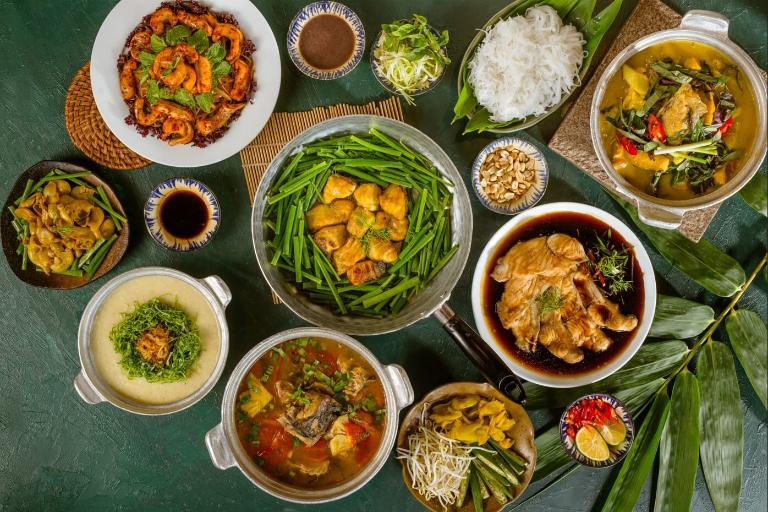
History of Cha Ca in Vietnamese Cuisine
Origins of Cha Ca
Cha Ca has roots firmly in the Old Quarter of Hanoi, having evolved over a century. The Doan family is reported to have produced it during the French colonial period. Originally intended for Vietnamese troops, this meal gained popularity right away for its tempting taste. Soon after opening the well-known Cha Ca La Vong restaurant, where the dish was a main highlight.
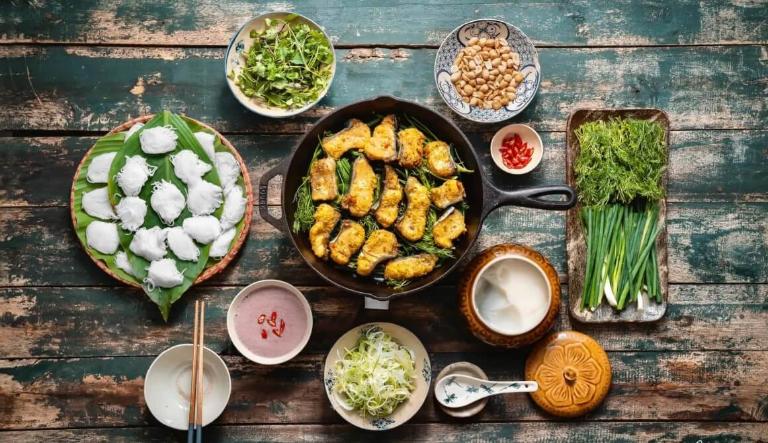
Evolution of the Recipe
Cha Ca has kept its basic elements over the years, but little adjustments have been done to fit changing palates. The fish used originally was usually catfish, although today many people like snakehead fish for its solid texture. Still, the distinctive turmeric marinade and the use of fresh dill—a mix that distinguishes this turmeric-marinated fish from other Vietnamese cuisine—have not changed.
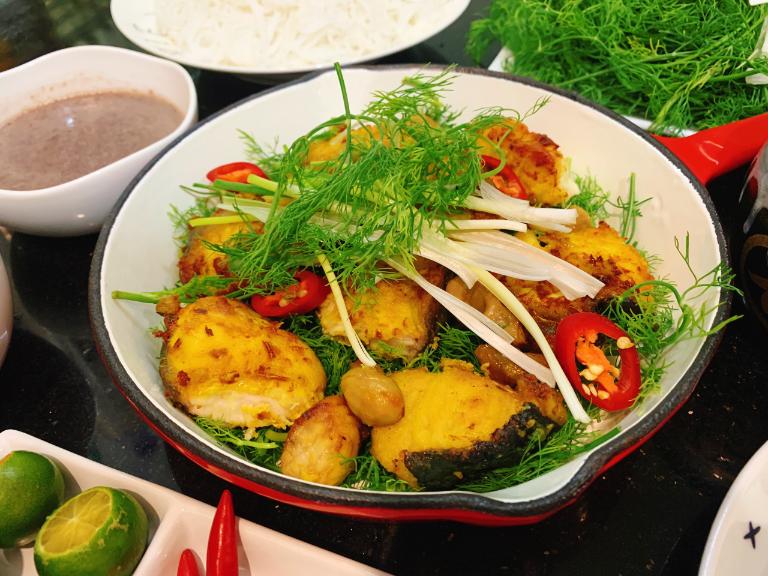
>>> Let’s see more: Top 10+ Must-try Dishes in Hanoi: A Guide to Ha Noi’s Best Food
The Ingredients that Make Cha Ca Unique
Turmeric – The Golden Spice
More than merely a colorant in Cha Ca, turmeric is a fundamental flavor ingredient. This vivid yellow spice brings a subdued earthy bitterness that balances the fish’s sweetness. Apart from its taste, turmeric is well-known for its anti-inflammatory action, so this turmeric-marinated fish is not only tasty but also quite nutritious.
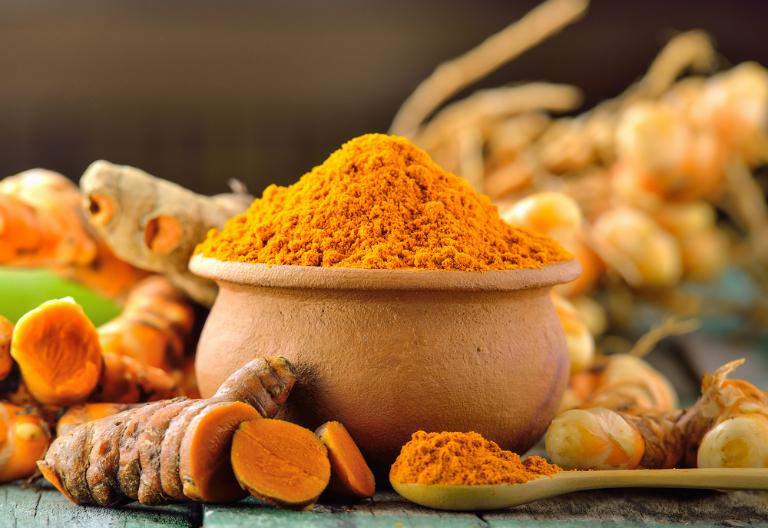
Fresh Dill – A Rare Addition in Asian Cuisine
Although dill is generally connected with European and Middle Eastern cuisines, its usage in this dish is a pleasant surprise. Dill’s strong, slightly sour taste balances the fish exactly and offers a cool counterpoint to the thick turmeric marinade. Dill’s addition to this recipe is evidence of the way Vietnamese cuisine combines cultural inspirations.
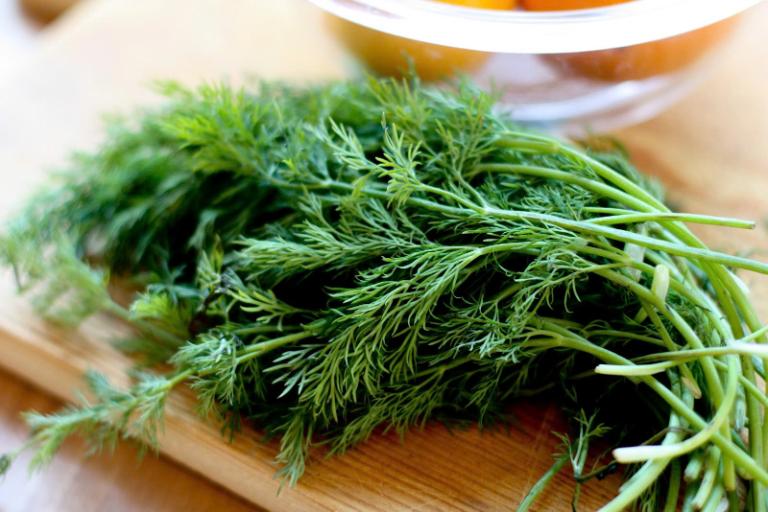
Fish – The Star of the Dish
Though there is variation in the choice of fish, the most often used varieties are catfish or snakehead fish, both valued for their hard texture and taste absorption capacity. To guarantee every mouthful is bursting with taste, the fish is marinated in a blend of turmeric, garlic, and galangal.
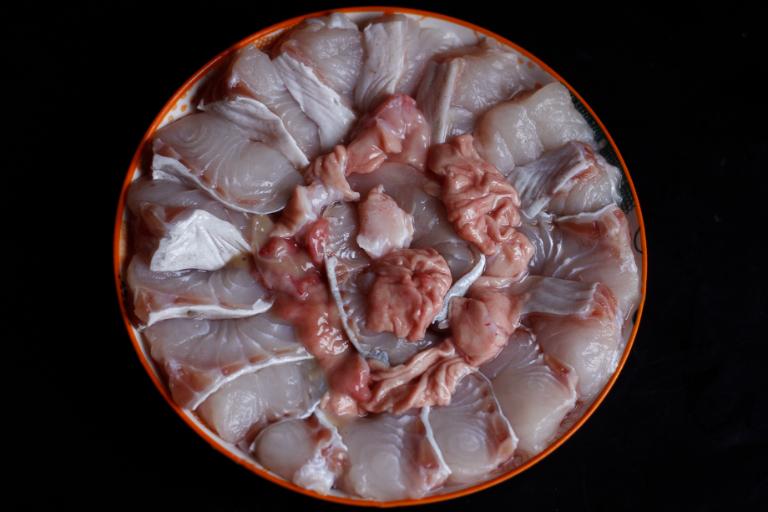
How Cha Ca is Made: A Step-by-Step Guide
Preparation of the Marinade
Cha Ca’s marinade sets off its magic. The fish are coated with a concoction of turmeric, garlic, shallots, galangal, fish sauce, and oil. This is then left to marinade for several hours so the tastes may really enter the fish.
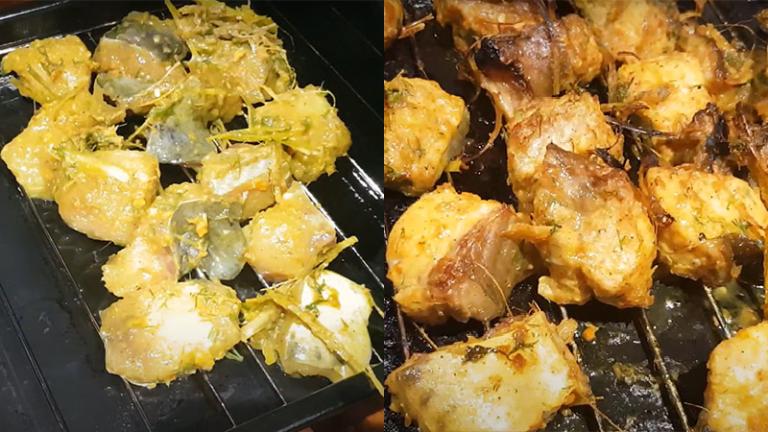
Cooking the Fish
The fish broiled to perfection once marinated. Usually cooked over an open flame, the fish gains a smokey taste. Still another popular technique is pan-frying, though. The fish has earthy warmth from turmeric, is delicate on the inside, and is just mildly crispy on the surface.
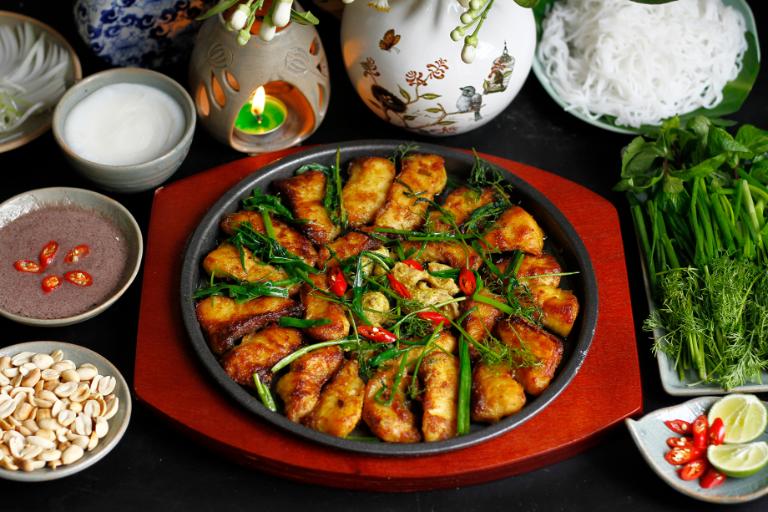
Assembling the Noodles and Garnishes
Constructing the dish comes last. Present alongside the fish are rice vermicelli noodles accompanied by fresh herbs, peanuts, and a dipping sauce derived from fish sauce, sugar, and lime. Usually kept on the table to keep the fish warm, a little stove lets diners fry the remaining dill and spring onions in oil.
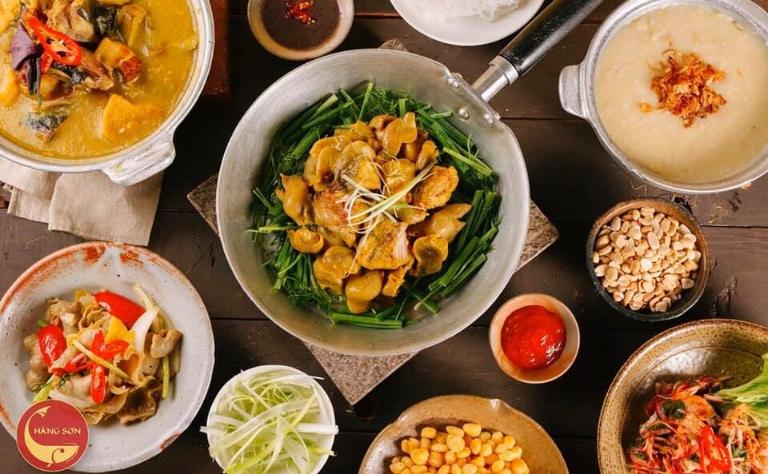
The Cultural Significance of Cha Ca
A Hanoi Specialty
Cha Ca is like pho or bun cha, always connected with Hanoi. This meal has gone beyond its modest origins to come to represent the city. Today, without tasting this famous meal, no trip to Hanoi is whole.
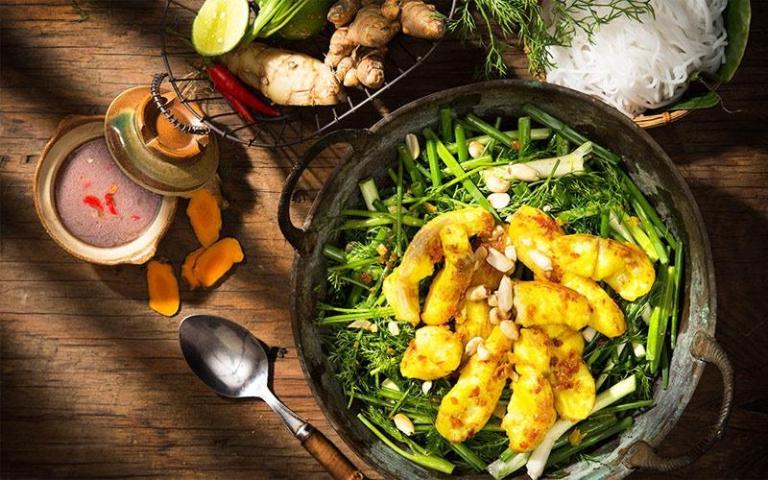
The Role of Family Tradition
The way this dish has been handed down through the years is among its most endearing features. Many families still prepare the meal just as their forebears did, therefore honoring the authenticity and legacy of this Hanoian gift.
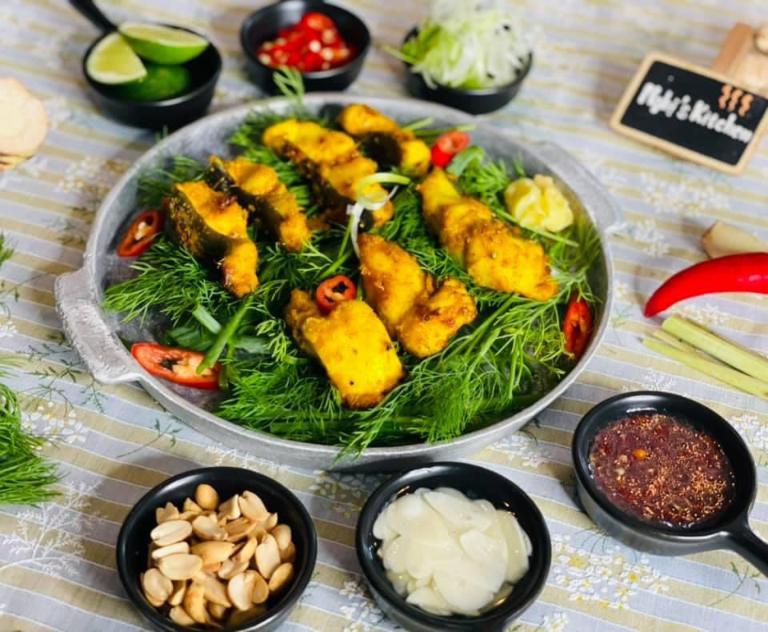
Where to Find the Best Cha Ca in Hanoi
Famous Cha Ca Restaurants
Though there are plenty of Cha Ca-serving eateries in Hanoi, some stand out for their reputation and past. Having presented the meal for more than a century, Cha Ca La Vong is the most well-known. Additional well-known locations are Cha Ca Thang Long and Anh Vu.
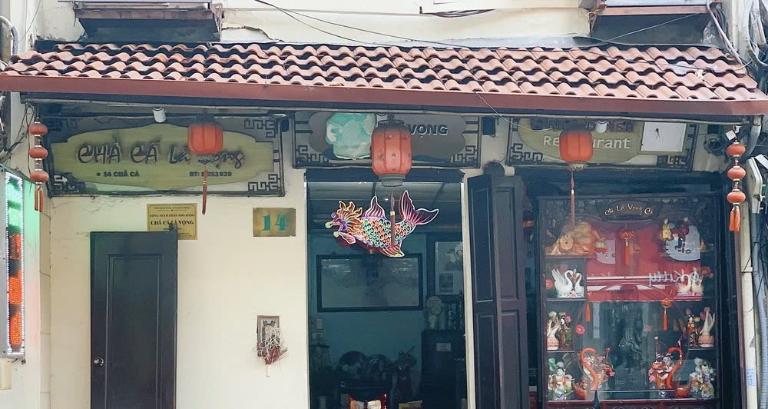
Hidden Gems: Lesser-Known Spots
Many hidden treasures provide equally great Cha Ca versions for those wishing to avoid the tourist throngs. If you want to experience Hanoi’s vegetarian cuisine, Hanoi Motorbike Tour will guide you on your journey. Small, family-run restaurants hidden down Hanoi’s side streets sometimes offer a more real and personal dining experience.
How to Enjoy This Turmeric-marinated Fish Like a Local
Pairing Cha Ca with Side Dishes
If you’re feeling daring, serve Cha Ca with a side of mam tom, fermented shrimp paste to improve your experience. A basic dipping sauce comprising fish sauce, lime, and chile works miracles for a gentler choice. For additional texture and taste, remember to toss in a fair serving of fresh herbs and peanuts.
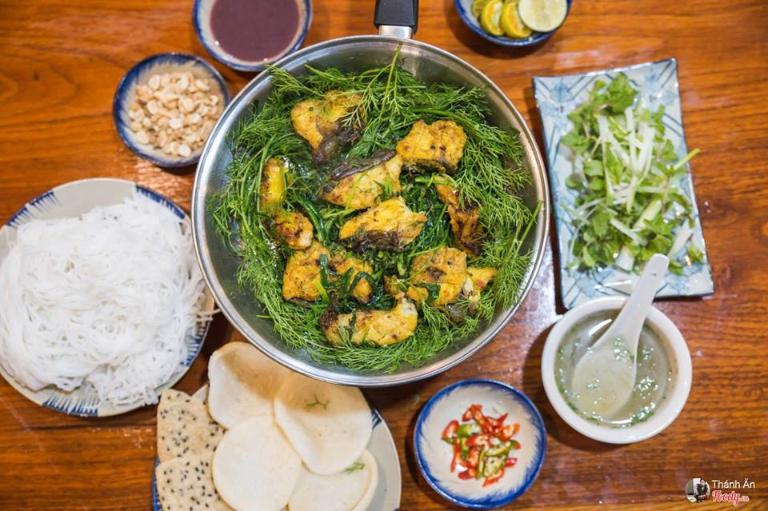
Dining Etiquette in Vietnam
Be ready for a shared dining experience when eating Cha Ca in a neighborhood restaurant. Usually presented on a sizzling skillet, the fish is accompanied by vegetables and herbs consumed by patrons. This meal promotes sharing, communication, and a connection to Vietnamese culinary history.
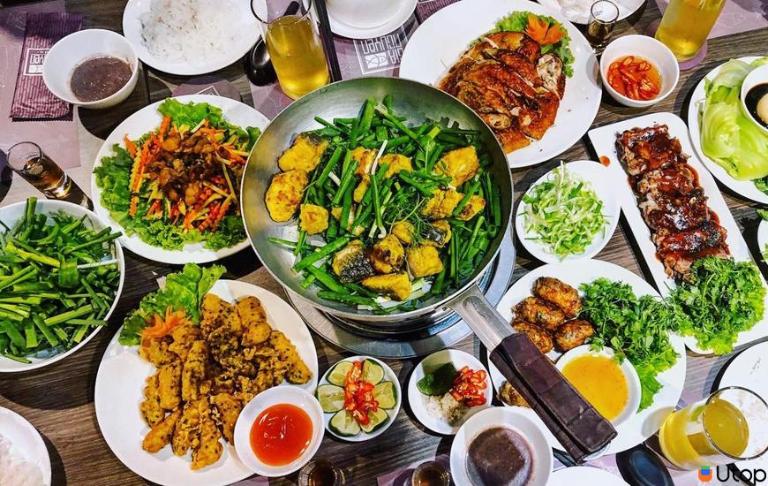
Cha Ca is an experience that links the past and present, fusing flavors, family customs, and cultural relevance more than only a meal. Whether you’re trying your hand at making it at home or savoring it in a busy restaurant in Hanoi, this famous meal will permanently alter your taste memory.
Related Posts:
- Explore the Best Hanoi Bread | A Guide to Vietnam’s Iconic Sandwich
- Vietnamese Sticky Rice: A Staple of Tradition and Taste
- The Art of Making Com (Young Sticky Rice) in Ha Noi: Tradition & Taste
- Bun thang Hanoi: Discover the Delicate Noodle Soup of Vietnam’s Capital
- Discover Bun Dau Mam Tom in Hanoi: A Vietnamese Culinary Gem








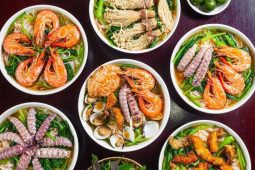

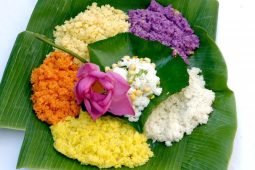
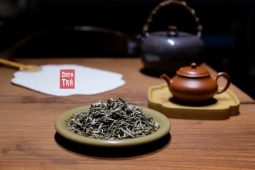
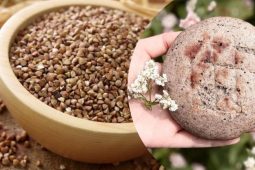

Be the first to comment!